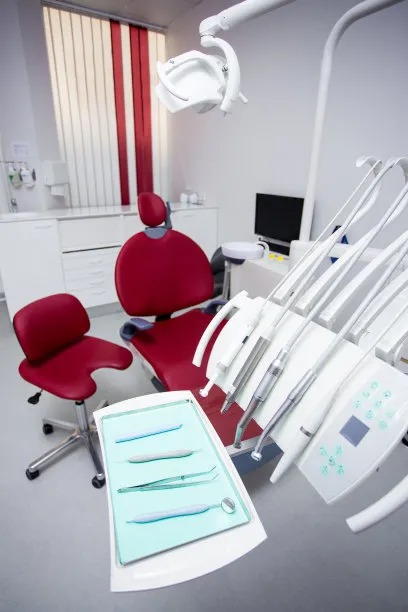Essential Guidelines to Follow Before and After Your Dental Filling Procedure for Optimal Oral Health Care
Summary: Dental fillings are necessary to restore cavities and maintain oral health. However, proper guidelines must be followed before and after the procedure for optimal outcomes. This article outlines essential steps to take prior to your dental filling, post-procedure care instructions, understanding potential side effects, and when to consult a dentist. By adhering to these guidelines, patients can ensure a smoother recovery while maximizing the longevity of their dental fillings. Implementing these practices is crucial for effective oral health care. Follow these recommendations and maintain your smile with confidence.
1. Preparing Yourself Before the Dental Filling

Before getting a dental filling, it’s important to prepare adequately to ensure a smooth and successful procedure. Start by asking your dentist any questions you might have about the filling process. This will help reduce anxiety and set proper expectations. Understanding what will happen during the visit can greatly alleviate any nervousness you may experience.
Make sure to inform your dentist about any medications you are currently taking or any allergies you may have. This is particularly crucial if you are taking blood thinners or if you have a history of allergic reactions to anesthesia. Being transparent will help your dentist make the best choices for your treatment plan.
Additionally, it is beneficial to arrange for someone to drive you home after the procedure. Although most fillings are relatively straightforward and won’t require sedation, it’s always prudent to have a backup plan in case of unexpected events or discomfort. This preparation can significantly enhance your overall experience.
2. Post-Procedure Care Instructions
After you receive your dental filling, proper care is key to ensuring its durability. Immediately following the procedure, avoid eating or drinking until the numbness wears off. This helps to prevent accidentally biting your cheek or tongue, which can lead to further complications.
Once the numbness has subsided, be gentle with the filled tooth for at least the first 24 hours. Eating softer foods can help reduce strain on the filling while allowing you to maintain your nutrition. Foods such as yogurt, smoothies, and soups are excellent choices during this initial recovery period.
Moreover, maintaining excellent oral hygiene is essential after a filling. Brush and floss your teeth gently to avoid disturbing the new filling. Avoid mouthwashes or rinses that contain alcohol, as they may irritate the filling material. Following these guidelines will promote healing and the overall success of the dental filling.
3. Understanding Potential Side Effects
It is crucial to be aware of potential side effects following a dental filling. Some patients may experience sensitivity in the filled tooth for a few days post-procedure. This sensitivity can occur when consuming hot or cold foods and beverages. It is usually temporary; however, if the sensitivity persists beyond a week, consult your dentist.
Occasionally, patients may notice discomfort or even pain in the filled tooth during the following days. This could indicate that the filling is too high and needs adjustment. If you experience pain, it’s advisable to contact your dentist to discuss the issue and determine if an appointment is needed for a correction.
Lastly, it’s important to monitor your oral health closely after the filling. If you notice any unusual changes such as swelling, incessant pain, or increased sensitivity, do not hesitate to reach out to your dental care provider. Early detection and intervention can prevent more severe complications from arising.
4. When to Consult Your Dentist
While adhering to post-filling care, it’s essential to know when to seek professional help. If you notice any issues with your filling, such as cracks or discomfort that persists for an extended time, schedule an appointment with your dentist. Delaying treatment for damaged fillings can lead to further decay and complications down the line.
Additionally, if you experience swelling or signs of infection—such as fever, pus, or severe pain—contact your dentist immediately. These symptoms may require prompt attention to prevent further health risks and to ensure the stability of the filling.
Regular follow-up appointments are also important for monitoring the health of your fillings and overall oral health. Ensure you visit your dentist regularly for check-ups, as they can detect potential issues long before you notice them. Proactive dental care is key to sustaining your oral health.
In conclusion, following essential guidelines before and after your dental filling procedure is vital for optimal oral health care. Proper preparation, post-procedure care, understanding potential side effects, and knowing when to consult your dentist can significantly impact the success of your dental fillings. With this knowledge, you can maintain your oral health and ensure that your smile shines brightly.
This article is compiled by Vickong Dental and the content is for reference only.



